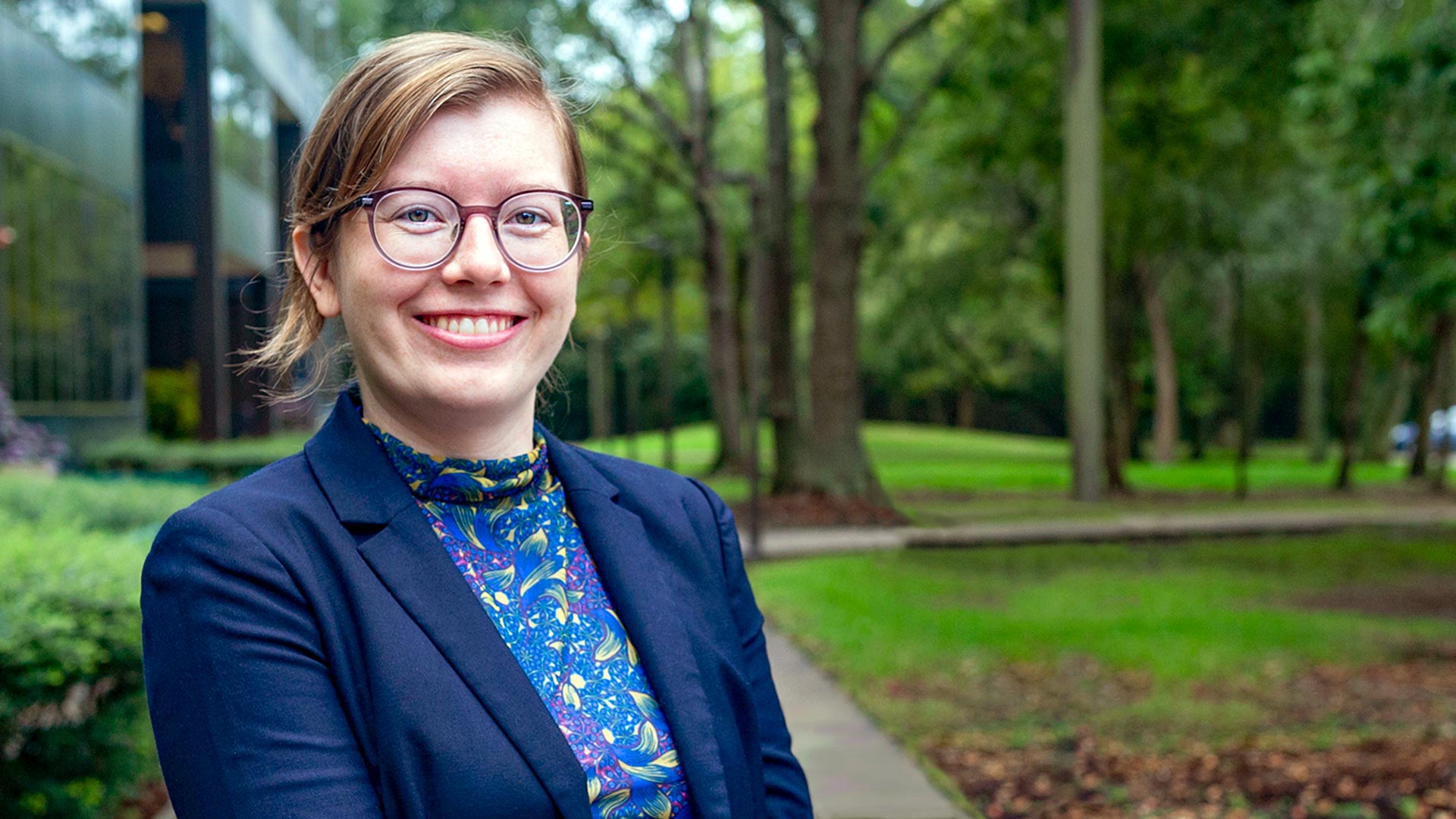- Future Students
- How to Apply
- Visit UHCL
- Admitted Students
- Tuition, Costs and Aid
- Degrees and Programs
- Contact Admissions
- Current Students
- Class Schedule
- Academic Calendar
- Advising
- Events
- Library
- Academic Resources and Support
- Student Services and Resources
- Alumni
- Lifetime Membership
- Alumni Events
- Update Your information
- Awards and Recognitions
- Give to UHCL
UHCL profs showcase research excellence in monthly talks
January 21, 2021 | UHCL Staff

University of Houston-Clear Lake's College of Human Sciences and Humanities will launch a new virtual lecture series on Jan. 25 at 6 p.m. with an exploration into New Orleans' long tradition of cooperatives.
The College's Interim Dean Samuel Gladden said the topics in this series, entitled "The College of HSH Presents" Faculty Lecture Series, will be far-ranging and will spotlight professors' research. "Our professors produce research that is responsive to social issues; we are interested in the work of our colleagues across disciplinary and departmental lines; and we are eager to welcome others into a dialogue with us," Gladden said.
Each event in the series will feature a 20-30-minute lecture followed by a moderated 15-minute Q&A. The series will open with "Cooperating in the Crescent City: Lessons Learned from New Orleans' Interracial, Intergenerational Cooperative Movement" by Anne Gessler, clinical assistant professor of First-Year Seminar and Humanities and coordinator of the university's Common Reader program. Gessler's lecture is based on her doctoral dissertation research, in which she studied how historical cooperatives have shaped New Orleans from the Great Depression to the present day.
"Cooperatives are elastic, with many models," Gessler said. "There are many different ways people work collaboratively to help each other in a more equitable way to achieve prosperity within that group," she said. "The idea is that the workers in the collective control the way the entity operates. It can be a farm, a school, a credit union — almost anything. And any level of distribution or production can be cooperative."
For her lecture, which opens with remarks from Jeff Lash, associate professor of geography, Gessler said she would be looking at how the civil rights movement influenced cooperatives and would examine the legacy of the movement on co-ops. "I'll start with the Great Depression and move forward till today," she said.
Even in the present day, co-ops are very important. "With COVID and issues surrounding racial reckoning, there is a push to reinvigorate co-ops and see how they can help preserve economic resources of communities," she said. "Co-ops show how people can help preserve economic resources of their communities, and wed racial justice and economic prosperity through co-ops."
Gessler's newly-published book, "Cooperatives in New Orleans: Collective Action and Urban Development" takes a deep dive into the cultural history of the cooperatives driving New Orleans' urban development.
"I hope my lecture has interdisciplinary applications among economists, policy makers and social movements," Gessler said. "I hope some people in the College of Science and Engineering might be interested in hearing more about co-op networks. There are many applications in agricultural systems and distribution, not just in history or in the humanities."
She added that she hoped community members might be inspired to start a co-op, learn about the benefits and pitfalls, considering them as lessons to incorporate into their own co-op movement. "There is a very broad audience that could find interest in this topic," she said.
On Feb. 8, the series will feature "Definitions of Diversity and their Impact on Creating Culturally Responsive Learning Environments" by Associate Professor of Psychology Desdamona Rios and Associate Professor of Sociology Amy Lucas. On March 1, the series will feature "What Employers Want: Writing in UHCL's Top Four Majors" by Assistant Professor of Writing Lorie Jacobs. On March 29, Professor of Philosophy Keith Parsons will present "Why it is OK to Trust Science," and the series culminates on April 12 with Associate Professor of Art History Sarah Costello's presentation, "Telling Better Stories: Archaeology, Object Biography and the Public." All lectures will be permanently archived on the college's YouTube page.
Gladden said he hoped the series will appeal to a wide audience, including current students, faculty, staff, and members of the community as well as potential students and faculty who are looking to call UHCL home. "Seeing and hearing our faculty talk about their work is one way we can showcase their work, presenting their research to the world and demonstrating that the College of Human Sciences and Humanities is a vibrant, collegial space that fosters excellence," he said.
Register for the Jan. 25 webinar online.






